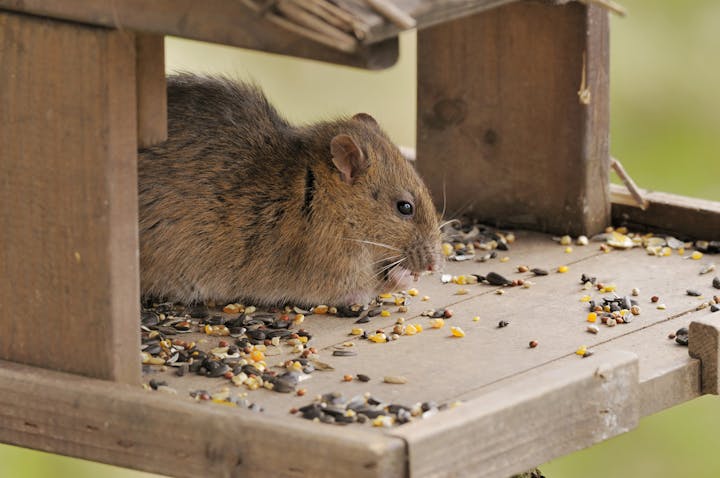How do I know if rats have taken up residence in my home?
Rats aren’t necessarily picky about where they take up residence. If they have water, shelter and food, rats will survive. However, they are more likely to enter your home during the winter months as they are seeking protection from the inclement weather. So, how do you know if you are sharing your home with rats?
- Droppings- The first thing you are likely to find if you have rodents in your home is droppings. The droppings are dark in color, spindle shaped, and between ½ - ¾ inch in size.
- Evidence of nesting- Rats like to nest in areas that are warm and cozy such as behind appliances, in attics and inside walls. They often use shredded newspaper, fabric, cardboard, insulation, or other materials that are readily available for their nests.
- Gnaw marks- A rat’s incisors never stop growing! Rats must continuously gnaw on things to keep their teeth a manageable length. If they stopped gnawing, their teeth would grow to a point where they would never be able to eat, resulting in death. Signs that you are sharing your home with rats include finding items around your home with gnaw marks on them or hearing gnawing sounds in the walls.
- Noises at night- Rats are nocturnal animals so you are most likely to hear activity at night. Scratching and gnawing sounds are commonly heard in walls, cabinets, and ceilings. Another common sound is the pitter patter of their little feet as they scurry around the attic or on the roof.
- Grease (rub) marks- Rats have poor eyesight and thus use their whiskers to help guide them along walls. As a result, their fur will rub against baseboards leaving behind greasy rub marks. You can also find rub marks around access points such as broken vent screens.
Other signs of rodent infestations include damaged electrical wiring, half eaten fruit or vegetables in your garden, and unusual pet behavior.
If you think you are experiencing a rodent issue, we can help. Contact us at 707-285-2200 for a free rodent inspection. Learn more about rodents and ways to reduce populations: www.msmosquito.org/rats

